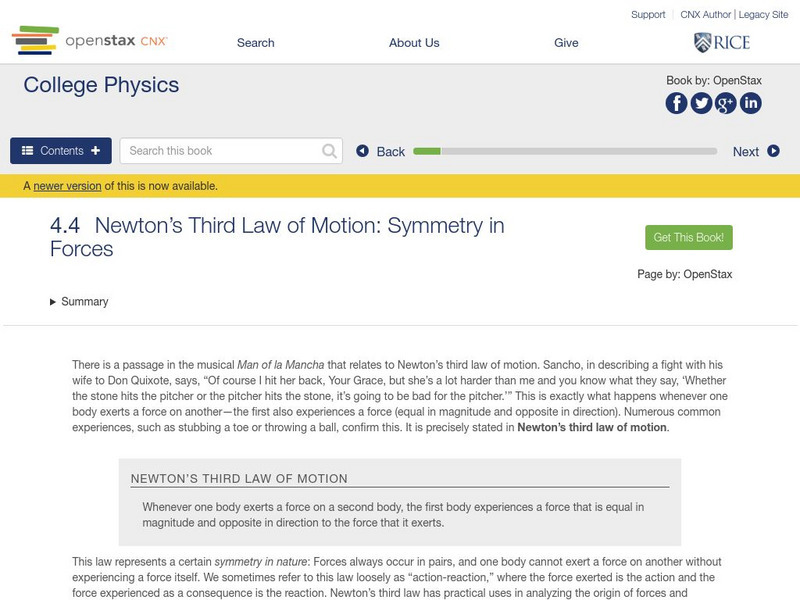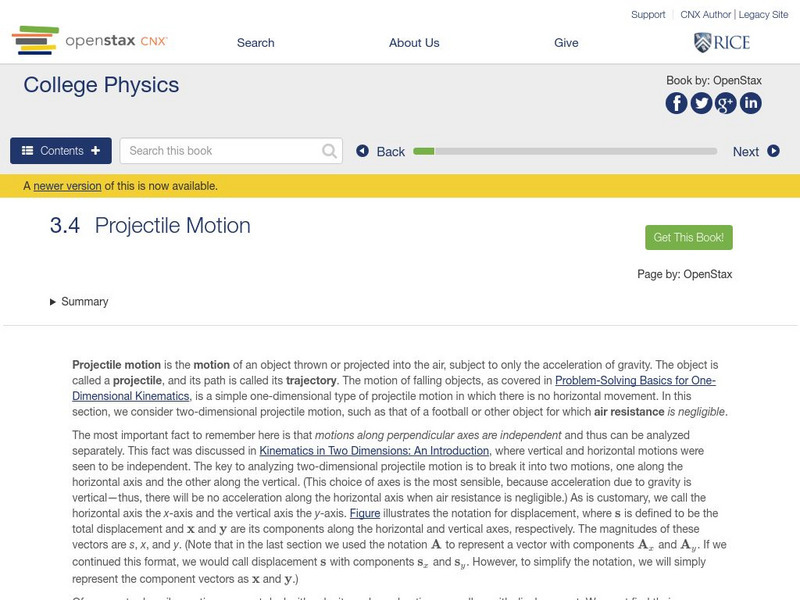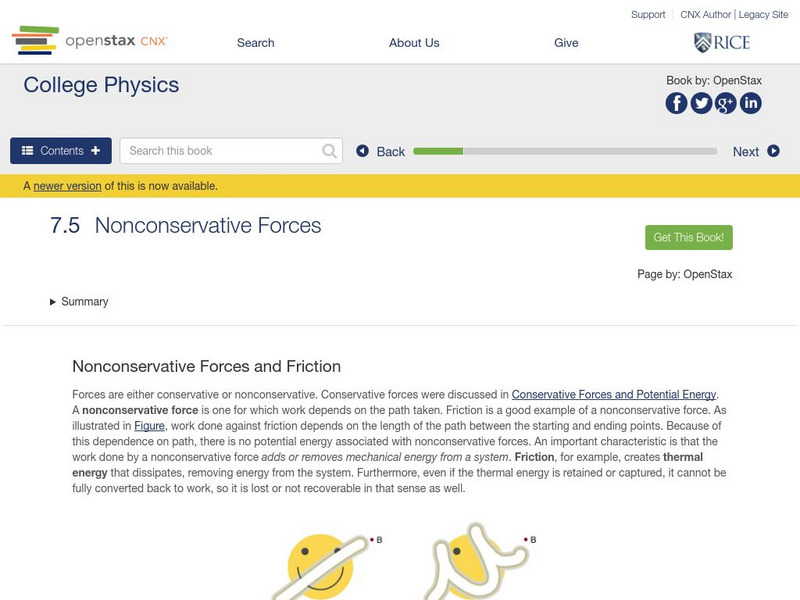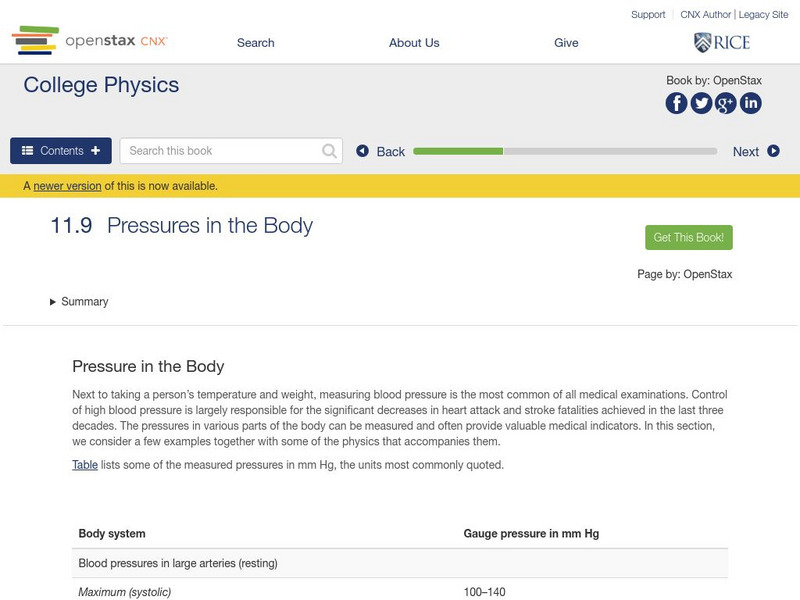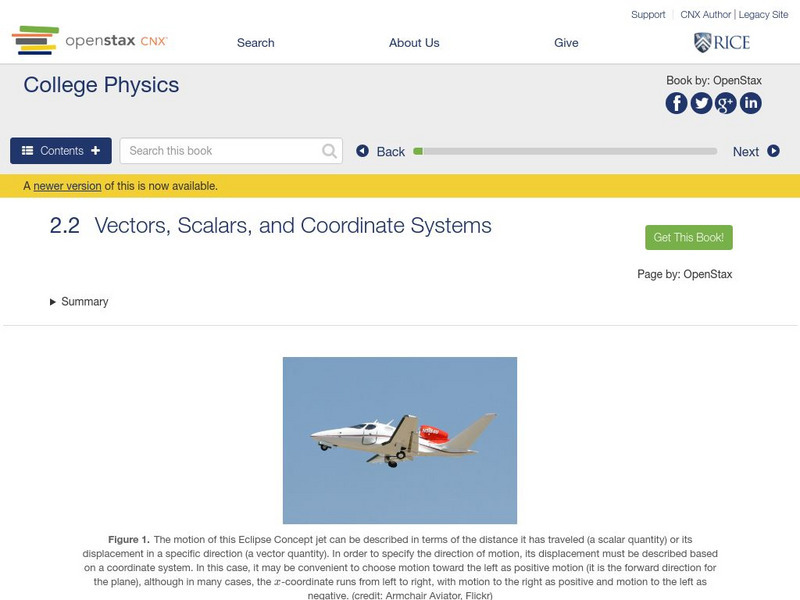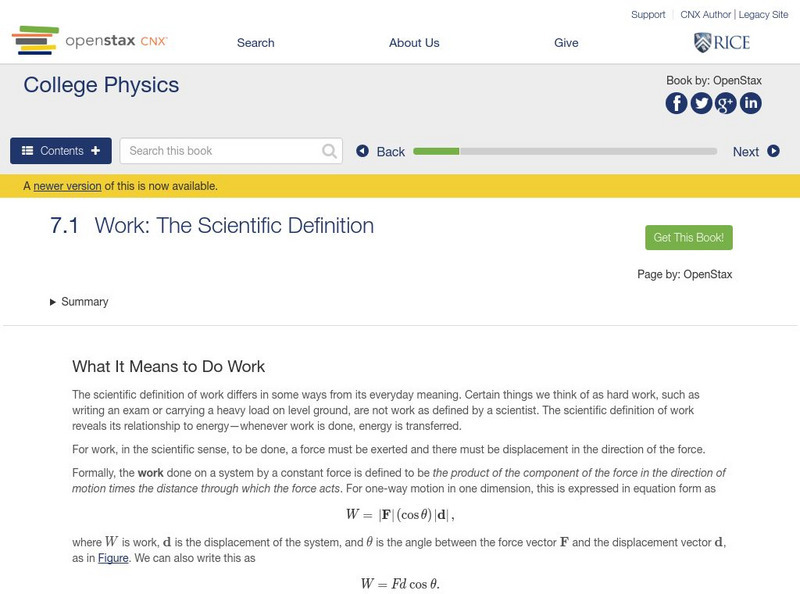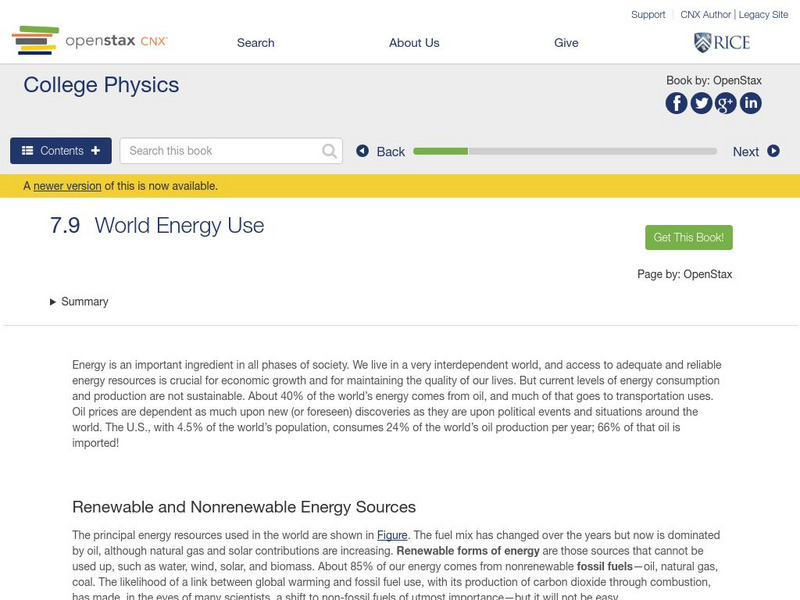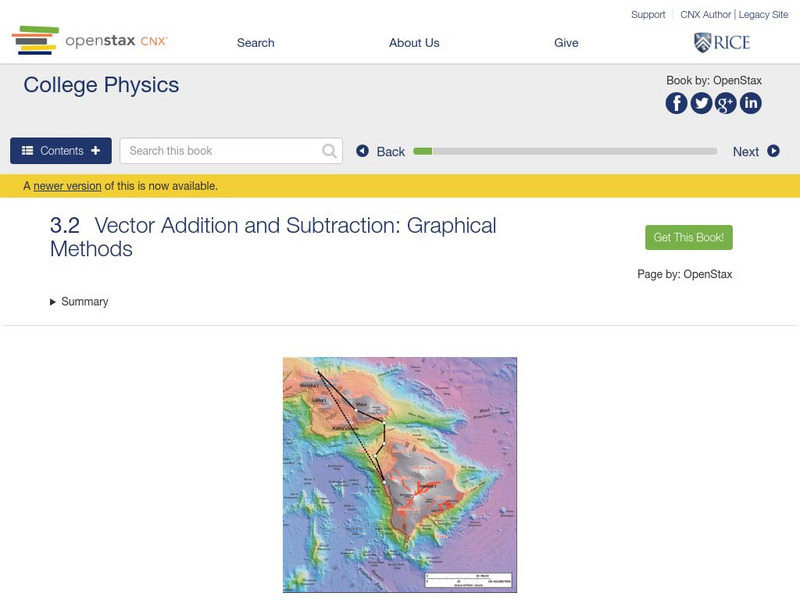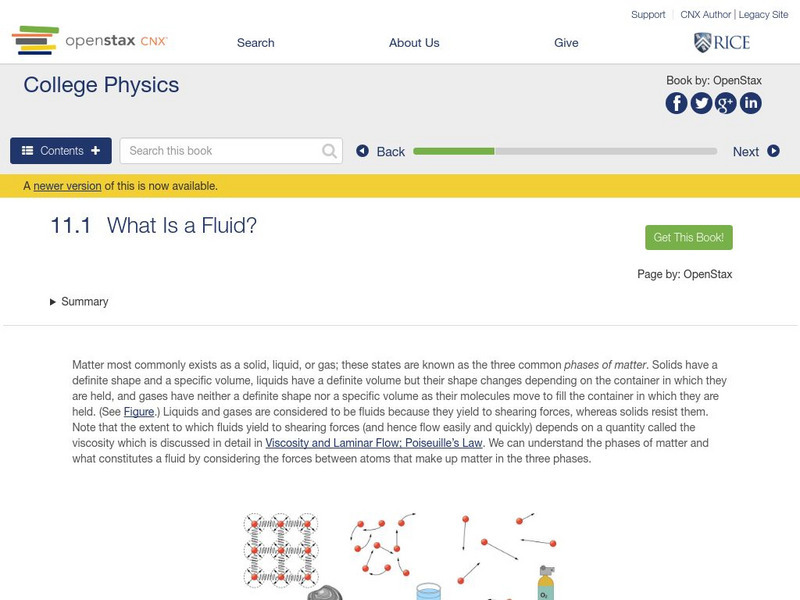OpenStax
Open Stax: Protein Synthesis
Most structural components of the cell are made up, at least in part, by proteins and virtually all the functions that a cell carries out are completed with the help of proteins. This site explains protein synthesis, including that of...
OpenStax
Open Stax: Requirements for Human Life
Earth and its atmosphere have provided us with air to breathe, water to drink, and food to eat, but these are not the only requirements for survival. Although you may rarely think about it, you also cannot live outside of a certain range...
OpenStax
Open Stax: Newton's Third Law of Motion: Symmetry in Forces
In the following interactive students will begin to understand Newton's third law of motion and also apply it to define systems and solve problems of motion.
OpenStax
Open Stax: Newton's Universal Law of Gravitation
In the following interactive students will explain Earth's gravitational force and describe the gravitational effect of the Moon on Earth. They will discuss weightlessness in space and examine the Cavendish experiment.
OpenStax
Open Stax: Newton's First Law of Motion: Inertia
In the following interactive students will begin to define mass and inertia and understand Newton's first law of motion.
OpenStax
Open Stax: Pascal's Principle
From a chapter on Fluid Statics in a Physics textbook. This section of the chapter looks at Pascal's principle and its applications, and how forces in a hydraulic system are related. Includes problems and exercises.
OpenStax
Open Stax: The First Condition for Equilibrium
From a chapter on Statics and Torque in a Physics textbook. This section of the chapter discusses what the first condition for equilibrium is, and describes what static and dynamic equilibrium are. Includes two questions and a...
OpenStax
Open Stax: Pressure
From a chapter on Fluid Statics in a Physics textbook. This section of the chapter defines pressure and how it relates to force, as well as how to find the amount of force given area and pressure. Includes questions, problems and...
OpenStax
Open Stax: Projectile Motion
The following interactive helps students understan how to identify and xplain the properties of a projectile, such as acceleration due to gravity, range, maximum height, and trajectory. They will determine the location and velocity of a...
OpenStax
Open Stax: Nonconservative Forces
In the following interactive students will begin to define nonconservative forces and explain how they affect mechanical energy. They will show how the principle of conservation of energy can be applied by treating the conservative...
OpenStax
Open Stax: The Second Condition for Equilibrium
From a chapter on Statics and Torque in a Physics textbook. This section of the chapter discusses what the second condition for equilibrium is, and explains what torque is and its role in rotational mechanics. Includes questions,...
OpenStax
Open Stax: Physical Quantities and Units
Giving numerical values for physical quantities and equations for physical principles allows us to understand nature much more deeply than does qualitative description alone. To comprehend these vast ranges, we must also have accepted...
OpenStax
Open Stax: Time, Velocity and Speed
In the following interactive module, students will begin to explain the relationships between instantaneous velocity, average velocity, instantaneous speed, average speed, displacement, and time. They will calculate velocity and speed...
OpenStax
Open Stax: Pressures in the Body
From a chapter on Fluid Statics in a Physics textbook. This section of the chapter covers the different types of fluid pressures in the human body and how they are measured. Includes problems and exercises.
OpenStax
Open Stax: Vectors, Scalars, and Coordinate Systems
In this interactive module, students will learn how to define and distinguish between scalar and vector quantities. They will assign a coordinate system for a scenario involving one-dimensional motion.
OpenStax
Open Stax: Newton's Second Law of Motion: Concept of a System
In the following interactive students will begin to define net force, external force, and system and understand Newton's second law of motion. They will also apply Newton's second law to determine the weight of an object.
OpenStax
Open Stax: Work: The Scientific Definition
In the following interactive students will begin to explain how an object must be displaced for a force on it to do work. They will also explain how relative directions of force and displacement determine whether the work done is...
OpenStax
Open Stax: Physics: An Introduction
This interactive lesson introduces students to the branch of science known as physics.
OpenStax
Open Stax: World Energy Use
From a chapter on work and energy in a Physics textbook. This section of the chapter covers the difference between renewable and nonrenewable energy resources, the growth in the world's energy consumption, and the link between energy use...
OpenStax
Open Stax: Rotation Angle and Angular Velocity
In the following interactive students will begin to define arc length, rotation angle, radius of curvature and angular velocity. They will also calculate the angular velocity of a car wheel spin.
OpenStax
Open Stax: Vector Addition and Subtraction: Graphical Methods
In this interactive site, students will begin to understand the rules of vector addition, subtraction, and multiplication and apply graphical methods of vector addition and subtraction to determine the displacement of moving objects.
OpenStax
Open Stax: Satellites and Kepler's Laws: An Argument for Simplicity
In the following interactive students will begin to understand the laws of Kepler regarding planetary motion and derive the third law of Kepler for circular orbits. They will also discuss the Ptolemaic model of the universe.
OpenStax
Open Stax: Rotational Kinetic Energy: Work and Energy Revisited
From a chapter on Rotational Motion and Angular Momentum in a Physics textbook. This section of the chapter discusses developing an equation for rotational work, how to determine the rotational kinetic energy along with a problem-solving...
OpenStax
Open Stax: What Is a Fluid?
From a chapter on Fluid Statics in a Physics textbook. This introductory section of the chapter covers the three common phases of matter, their physical properties, and how atoms are arranged in solids, liquids, and gases. Includes a...


